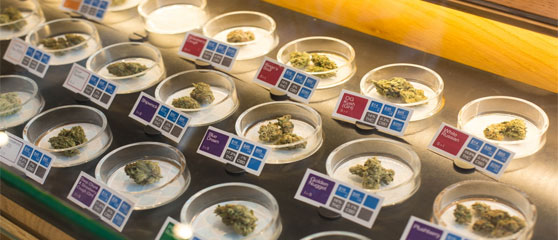Part one here // Part two here
Last month, I attended the Medical Cannabis Summit in Malta. The country wants to become a leader for European medical cannabis innovation, after several policy changes in recent years. After explaining the current policies around both medical and recreational cannabis use in Part One, and discussing the key takeaways from the conference in Part Two, this third part questions how this multi-million euro market seems to exist in a parallel reality to that of communities on the ground, showcasing the vital impact players such as ReLeaf can have on Maltese policy reform.
Between corporate millions and communities on the ground
According to Malta’s Prime Minster, Joseph Muscat, who gave an interview to the conference's now bi annual publication, Malta Enterprise has received 46 applications since the new cannabis legislation, with 20 projects having already been approved (19 have been refused). He estimated that these projects will bring €110M into capital expenditure, and once operational, are expected to create over 700 new full-time jobs supplementing Malta’s exports by over €900M by 2022 – mainly to EU markets.
This begs the question, always present in our field of research, of how we can continue to disassociate the recreational from the medical, allowing corporations to make incredible profits, while individual consumers – and crucially, patients – continue to suffer.
I asked Andrew Bonello the same question, and while he highlighted that the conference had been a valuable opportunity to showcase their work, it was also crucial to “lobby and ensure that cannabis companies keep in mind that the end patient must always be kept at the forefront of their endeavours”.
It was impossible not to find some irony in the whole situation. There were millions of euros being discussed, while, outside, a woman is given a six month prison sentence for planting a cannabis plant which had not even produced any buds, which should not even lead to such a sentence according to the recent Drug Dependency (Treatment) Act. While most speakers highlighted the need for social justice, the investment opportunities for medical applications were seen as separate from more politicised questions of recreational use.
To paraphrase Sumit Mehta, the founder and CEO of MAZAKALI, a cannabis investment firm based in San Francisco, there is an agreement for many North Americans that when Europe is ready to accept that all we are talking about is a plant, we can start regulating it as such and treating people more like farmers than grand criminals. This is true, but we can also not pretend that this has been the reality in North America for that long, and in some places, it still certainly is not.
What now?
In the end, for both Malta and Europe more generally, there is a hope that legislation on the recreational use of cannabis will also loosen up. As I attended the official opening of Wowie and Kush, the first luxury headshop in the island, it was difficult not to be a bit excited about the consequences of a growing medical cannabis market, which confront people more often with information about cannabis, in all its forms and different plants.
It was at that event that I first met ReLeaf's Andrew Bonello and Graziella Calleja, who are working on legislative changes that aim to “find a balance between a strict regulatory regime and a balanced approach” that helps to combat the dangers of the illegal market, like the presence of adulterants and chemicals, but also ensuring that consumers “are protected against commercial interests" and "centralised government databases”. This was already reflected in ReLeaf’s constitutional reform proposal to legalise personal cultivation and freedom to farm.
ReLeaf recently met the PM and Parliamentary Secretary Julia Farrugia Portelli, who both support further reform. From this, as well as meetings with other key players, ReLeaf will be releasing new proposals soon. These are centred around ReLeaf’s three cardinal demands to enhance “human rights and public health”:
- Right for personal cultivation and consumption of cannabis by adults;
- Removal of all criminal proceedings for non-violent cannabis convictions;
- The introduction and implementation of harm reduction principles.
Now, ReLeaf has gone even further, releasing an eight point proposal for the legalisation and regulation of cannabis consumption, which pushes the government to achieve this by the end of 2020. The document proposes wide-ranging measures, from removing the “punitive and criminal laws” for consumers, introducing preferential access schemes to local farmers to promoting amnesty to past, non-violent cannabis offenses and promoting harm reduction. The document is detailed but to the point, and continues to pressure for legalisation, which was after all a promise in the Labour Party’s manifesto, while confirming that ReLeaf will remain at the centre of the legalisation efforts in Malta.
What next?
Coming from Portugal myself, it was fascinating to be in Malta and see how another country traces its own path to becoming a leader in European cannabis matters. There is a real opportunity to learn from (and avoid repeating) the same mistakes that other countries with decriminalised policies have made – but this is not necessarily happening. There’s certainly much still left to do in order to create an environment where both patients and consumers can access what they need and want without the threat of prosecution, financial barriers, or being unable to voice their essential concerns and be met with solutions.
There is some hope for Malta that lessons can be implemented through a positive process of consultation with all the relevant stakeholders. Chris Fearne and Robert Abela – who are running for the leadership of the Maltese Labour Party, each with the hopes of becoming the next Prime Minister – both seem open to the legalisation of cannabis. They were both involved in legalising medical cannabis, Fearne as Health Minister and Abela serving as a legal consultant, a hopeful step in forging a decision-making process that avoids stigmatising, alarmist and ill-informed agendas to dictate government policy. Moralising, state-sanctioned rhetoric can no longer drive drug policy; the impact on people’s health and social wellbeing, personal and economic freedom and overall livelihoods is too great.
Ultimately, I also feel that gatherings like this have to do more to raise awareness of the incongruences of being in the cannabis market and profiting from products that elsewhere, or in the same country as we have seen in Malta itself, can still lead to a prison sentence. TalkingDrugs has previously reported on the importance of social equity in cannabis reform, including reparation models and the expungement of criminal records for newly legalised cannabis-related activities.
Between the insistence that CBD does not make you high, or that THC is only for fun or for terminal patients, we need to continue demystifying preconceptions, and accept that whether as patients or people who use recreationally, there is nothing wrong with wanting access to medicine, to feeling well, to experiencing pleasure for pleasure’s sake; people who want to who use drugs should have the freedom and access to do so in the safest way possible.
This artice is Part Three of a three-part series on cannabis in Malta. You can find Part One here and check out Part Two here.
*Massive thank you to Karen Mamo and Andrew Bonello for their contributions to this article series and for the super warm welcome in Malta!


